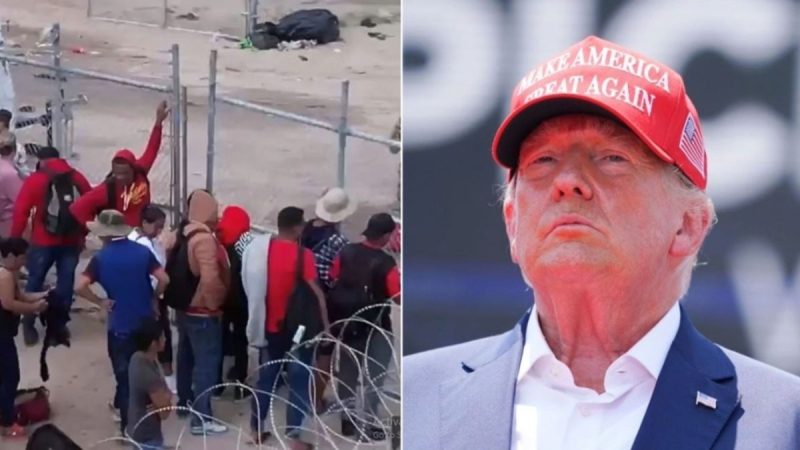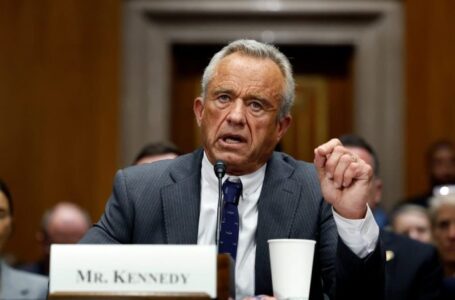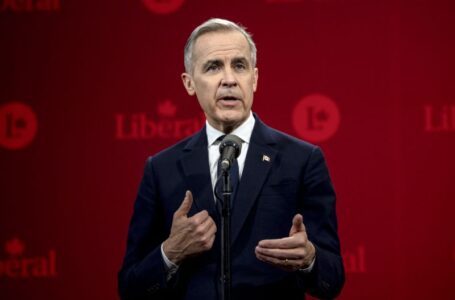Iran, China and Russia launch annual joint naval drills as Trump upends Western alliances
Trump’s tariff threats go beyond ‘trade agreement’ to advance American interests: expert


President-elect Trump announced plans to impose a 25% across-the-board tariff on all imports from Canada and Mexico, effective his first day in office. But the move is largely ‘a diplomatic’ one that draws on Trump’s ‘war chest’ to leverage U.S. interests, according to one expert.
Tariffs are taxes that governments place on goods being imported or exported. They can raise the cost of imported products, making local products more attractive to buy.
‘President Trump has used tariffs effectively before, and I think we can expect him to continue using them in a targeted manner, even in areas that are not directly related to trade,’ Andrew Hale, Heritage Foundation’s senior policy analyst, told Fox News Digital.
Hale noted that Trump’s previous use of tariffs was aimed not just at trade imbalances but also at issues like border security and drug trafficking. According to Hale, Trump has consistently applied these tariffs in areas that extend beyond trade imbalances, using them as tools of diplomacy to further ‘America First’ policies.
‘Trump continues to assert American strength on the world stage, something the Biden administration has been reluctant to do, and both allies and adversaries have taken notice of this, what I would call a resurgence of U.S. leadership with Trump’s return,’ he said.
Hale suggested that if Trump’s tariff proposals were implemented, Mexico and Canada might challenge them under the USMCA, but he doubts it would reach that stage, as such measures have previously proven effective in achieving U.S. goals. Hale also speculates that Trump could use tariffs as leverage in other contexts, such as targeting countries that act against U.S. allies like Israel.
‘I don’t see it going that far, because it’s effectively worked,’ he said.
During his first term, Trump renegotiated the North American Free Trade Agreement (NAFTA), replacing it with the United States-Mexico-Canada Agreement (USMCA), which went into effect July 2020. The USMCA aimed to modernize and address issues in the original NAFTA, particularly concerning labor rights, environmental standards and digital trade.
‘I’m going to inform her [Mexican President Claudia Sheinbaum] on day one, or sooner, that if they don’t stop this onslaught of criminals and drugs coming into our country, I’m going to immediately impose a 25% tariff on everything they send in to the United States of America,’ Trump said during his last North Carolina campaign stop before the election.
Hale added that Trump’s success in using tariffs during the USMCA renegotiation with Canada and Mexico demonstrates their power as a diplomatic tool, as Trump has criticized the nations over trade imbalances and issues like drug trafficking as justifications for the tariffs.
‘The Biden administration has not been implementing USMCA as they should, as Mexico has been violating it,’ Hale said.
While the tariffs aim to boost U.S. manufacturing, experts and some politicians warn they could disrupt supply chains, increase costs for businesses reliant on foreign goods, and potentially lead to retaliatory tariffs from trading partners, impacting American exporters.
On Thursday, liberal Gov. Gavin Newsom of California took aim at Trump’s proposal, calling it ‘one of the biggest tax increases in U.S. history.’
‘You are being betrayed by these policies,’ Newsom said.
According to the Tax Foundation, the Trump administration imposed some ‘$80 billion worth of new taxes on Americans’ in 2018 and 2019 when he slapped tariffs on $380 billion worth of products.
The Biden administration largely kept these tariffs in place and then enforced additional tax increases on $18 billion worth of Chinese goods.
Former Vice President Mike Pence came out in support of Trump’s tariffs, but urged a delicate approach to balance the country’s relationship with Beijing.
‘I fervently hope his proposed tariffs will bring China back to the negotiating table as it did during our administration. I know this will be difficult and create challenges in the short-term, but it will be well worth it in the long-term,’ Pence said this week. ‘We want better for America and China – and I believe a firm, but fair approach is the best way to get there.’
Trump also recently suggested to Canadian Prime Minister Justin Trudeau that if a tariff for failing to address trade and immigration issues would kill the neighbor to the north’s economy, maybe it should become the 51st state, sources told Fox News.
Sources say Trump became more animated when it came to the U.S. trade deficit with Canada, which he estimated to be more than $100 billion.
Fox News Digital’s Caitlin McFall, Greg Wehner and Bret Baier contributed to this report.











